SUMMARY
This is AI generated summarization, which may have errors. For context, always refer to the full article.

This compilation was migrated from our archives
Visit the archived version to read the full article.
Illustrations by Geloy Concepcion Design by ANALETTE ABESAMIS and DOMINIC TUAZON
Rappler’s series of
Here, in The Demonized, the second installment, we examine the worst versions of candidates running for President, as imagined by their critics. These profiles condense the range of commentary from political opponents, interest groups, columnists, as well as the grievances that populate both online and offline conversation. We hope to make sense of what frightens, what offends, and what angers a nation in search of a leader.
He says he was poor. He says it again and again, like a broken recorder on a 10-second loop. His mother died early because they were poor. He fed pigs at his uncle’s farm because they were poor. He worked through school because they were poor.
Watch him now, trumpeting his poverty, waving to the madding crowd, all while spending millions keeping up a hacienda half the size of a metropolitan city. His wife tends to her orchids and wanders down her gardens. His hogs lap up feed in air-conditioned piggeries surrounded by resort pools and manmade lagoons. There he walks, the short little man with the shit-eating grin and outstretched arms. See him on stage, dark-skinned, sunburnt, rousing the desperate poor with the devil in his eyes and a lie on his tongue. See him whine, watch him weep, woe is me, shame on you.
His name is a sacrilege, Jesus and Joseph and Mary stumbling off the tongue. He is Jojo to his friends. He is Binay to the press. He is whatever name he can borrow for the bottom of contracts he tries very much to hide. He is Jejomar Binay, lord of the city, thief in the night, the barefaced bandit who will take what he can get and pawn what he can’t. Watch your back, check your pockets – and wash your hands after he leaves.
Shameless
“The people regard him as a godfather,” said his daughter, Senator Nancy Binay, when asked why her father was seen handing out bills to a waiting crowd in front of their home.
The vice president’s orgy of generosity has extended across the country. He was in Manila and Davao del Sur, turning over medical equipment, then “donated the same to the provincial government of Batanes.”
The word “donated” is part of the language used by the vice president’s staff. Aid is charity, not government responsibility. Jejomar Binay gave away government-funded wheelchairs while talking about his plans to overhaul the failed government. You owe him what you paid for, and you best say thank you and hope for more.
In the hierarchy of Philippine archetypes, Binay is the traditional
He says his impoverished past makes him uniquely capable of understanding the poor, but it is that same understanding that allows him to take advantage of their vulnerabilities. To Jejomar Binay, every kind turn deserves thanks – and if you forget, he will be there to remind you.
There is Jejomar Binay, spelled out on boxes of free phones and Jejomar Binay printed on stickers slapped onto relief bags stuffed with cans of tuna and instant noodles. There is the Office of the Vice President carved into free pencils and on the covers of free notebooks. There is Jojo Binay and his slogan repeated on an eye chart in diminishing font sizes. There is Binay in bright blue on thousands of tamarind-flavored candy wrappers and printed on the arm warmers he tosses from stages and motorcades. There is the letter “B” carved out on rosary crosses handed out by the vice president himself.
Jojo Binay is family, and he promises that family looks out for family. He is generous with his favors and fatherly in his words, but the price he exacts is absolute loyalty. He owes no explanations. He has no accountability. He is sometimes crude, sometimes glib, but however he asks, his guiding principle is reciprocity. Scratch my back, and I scratch yours.
The Lord of Makati
Jejomar Binay, whatever his past, no longer has any claim to poverty. He declared 12 properties in his statement of assets, liabilities and net worth. Among them were 3 residences located in Makati’s exclusive San Antonio Village.
He is wealthy even by the standards of the elite he despises, yet he continues to insist it is “not true I have many properties.”
Twelve, in the worldview of the man who understands poverty, is apparently not many.
Asked how a man with 3 decades in In the first 9 years he served as mayor of Makati, Binay accumulated at least P80 million worth of real estate in Makati and Batangas, all of them undeclared. (READ: Lord of Makati) Between 2014 and 2015, the Commission on Audit confirmed red flags in Makati infrastructure projects. The Anti-Money Laundering Council announced its investigation on Binay’s possible money-laundering offenses. Binay himself faces plunder charges for an overpriced multi-billion-peso Makati city parking building. He was accused of acquiring kickbacks from city projects, and of owning an undeclared 350-hectare farm that spans 4 barangays in Rosario town in Batangas province. Several undeclared dollar accounts in foreign banks were discovered to belong to the vice president, along with an alleged 6 condominium units in different locations obtained in exchange for the speedy release of business permits. Former allies claimed Binay also pocketed close to P200 million in a deal with property developer Alphaland, and that he had overpriced another housing and relocation program by P1 billion. (READ: TIMELINE: Binay’s plunder case, one year after) In the aftermath of the accusations, the AMLC sought an order before a regional trial court to freeze 139 bank accounts and 19 real properties under the names of the Binay, his family, and his alleged dummies. Through it all, witnesses have gone missing. The vice president himself was caught collaring policemen ordered to arrest Binay’s son and former mayor Junjun Binay. Not once did the vice president present himself to answer questions at the Senate. Beat reporters say silence has become the Binay strategy. He evaded journalists, cut short ambush interviews, and deflected all accusations by calling them a concerted effort to bring him down. He has claimed to have submitted reams of evidence, a point Senator Sonny Trillanes has denied. All Binay offered, said Trillanes, was a “7-page affidavit containing general denials.” To the Binay camp, all allegations of corruption, in court or out, is proof of the government’s elitist agenda. He is short. He is dark. He has been called an ugly black man and a shrunken gnome. Because of it, to attack him is to attack all “true Filipinos.” The vice president may be correct that the voice of public bigotry has run amok, but he forgets that the attack on his darkness has become a metaphor for his depravity. “This is why he has welfare programs for the poor,” said Trillanes. “So he can steal.” The Lord of Makati Jejomar Binay takes credit for steering Makati “from a bankrupt municipality to the country’s premier city.” This, he says, is how we are in Makati. This is what I built, and what the country will be if you vote for me. Yet Makati’s success, wrote economist Solita Monsod, may “have nothing to do with Mr Binay.” In what has been a repeating sound bite throughout the elections, former interior secretary Mar Roxas reminded the vice president that “there are two Makatis.” “There is the Makati that the Ayalas developed where there are many jobs, and the Makati of the Binays that are still poor. In Comembo, Rembo – that’s where the poor are. That’s where the drugs are. In fact, Makati has the highest drug rate in the country!” Quoting data from the Philippine Drug Enforcement Agency, the Liberal Party’s Barry Gutierrez said no single village in the city of Makati is drug-free. “Compare that to 27 % of villages with drugs in the rest of the country.” It is Binay’s superlatives when describing Makati that gives critics room to challenge the vice president. There is no poverty in Makati, he says. There are no drugs in Makati. Told by a University of the Philippines student at a forum there were informal settlers in his city, the vice president eventually admitted there may be a remaining 3 to 5 %. “So there are informal settlers,” said the student. “You said there were none.” Let them eat cake In the world as imagined by his critics, Binay has stolen from the very old and from the very young. He has colluded with contractors. He has listed long-dead senior citizens as beneficiaries for bonuses. He has converted and sold land meant for public housing, and tossed the homeless to hellholes in the north. Every gift comes with a percentage. Every project comes with a price. To vote for Binay is to regress into the same politics of patronage that has been slowly trumped by 6 years with Benigno Aquino III at the helm. Under Binay, political administration will become a personal affair. Checks and balances will be choked by cronies willing to trade envelopes for operating licenses. The ideal of bureaucratic impartiality will be held hostage to the whims of a Binay dynasty. Public service will be a function of charity instead of responsibility – the birthday cake with “Love from Binay” spelled out in icing, instead of “From the People of Makati.” “The moral problem is not corruption,” Binay says, “the moral problem is poverty.” It is this defense that demonstrates the depth of the vice president’s distorted morality. It may be generally understood that to steal from the country is to steal from the poor, but to Jejomar Binay, corruption and poverty are not cause and effect. They are items in an agenda where corruption is not sin so much as fact. His name is a sacrilege, Jesus and Joseph and Mary stumbling off the tongue. He is Jojo to his friends. He is Binay to the press. He is whatever name he can borrow for the bottom of contracts he tries very much to hide. He is Jejomar Binay, lord of the city, thief in the night, the barefaced bandit who will take what he can get and pawn what he can’t. Watch your back, check your Editor’s Note: All quotations have been translated into English. This is The Demonized, the second installment of The Imagined President series, where Rappler examines the negative images of candidates running for President as imagined by their critics. We hope to make sense of what frightens, what offends, and what angers a nation in search of a leader. For Part 1, The Idealized version of Vice President Jejomar Binay”s
“That Mr Binay built up Makati to become the Philippines’ premier city is a stretch,” she said. “Makati was the country’s business and financial center even in 1986, Binay or no Binay. The skyscrapers, condominium buildings, hotels and shopping centers would have been built whoever the mayor was.”
Patricia Evangelista is Rappler’s multimedia manager. She is an international fellow of the Dart Center Ochberg Fellowship for Trauma Reporting and was awarded the Kate Webb Prize for exceptional journalism in dangerous conditions. In 2016, she received The Outstanding Young Men award for the field of journalism. Tweet her @patevangelista.
Nicole Curato is a sociologist from the University of the Philippines. She is currently a Discovery Early Career Research Award Fellow at the Center for Deliberative Democracy & Global Governance based in Canberra. In 2013, she received The Outstanding Young Men award for the field of sociology. Tweet her @NicoleCurato.
Checking your Rappler+ subscription...
Upgrade to Rappler+ for exclusive content and unlimited access.
Why is it important to subscribe? Learn more
You are subscribed to Rappler+
Join Rappler+ Donate Donate UPGRADE TO RAPPLER+ TO COMMENT JOIN RAPPLER+ TO COMMENT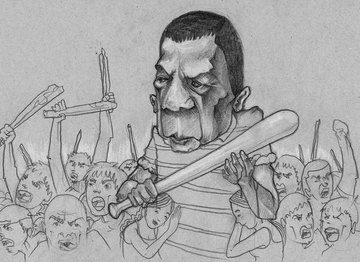
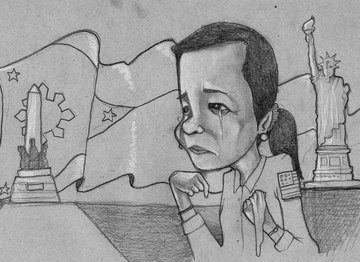
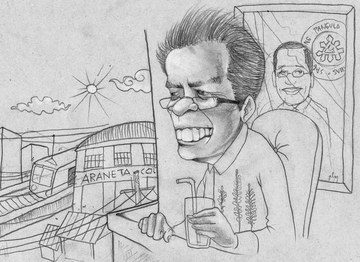
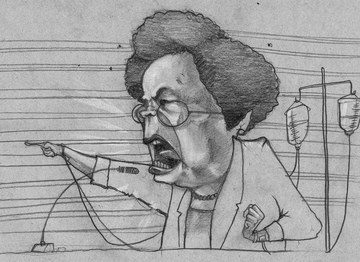
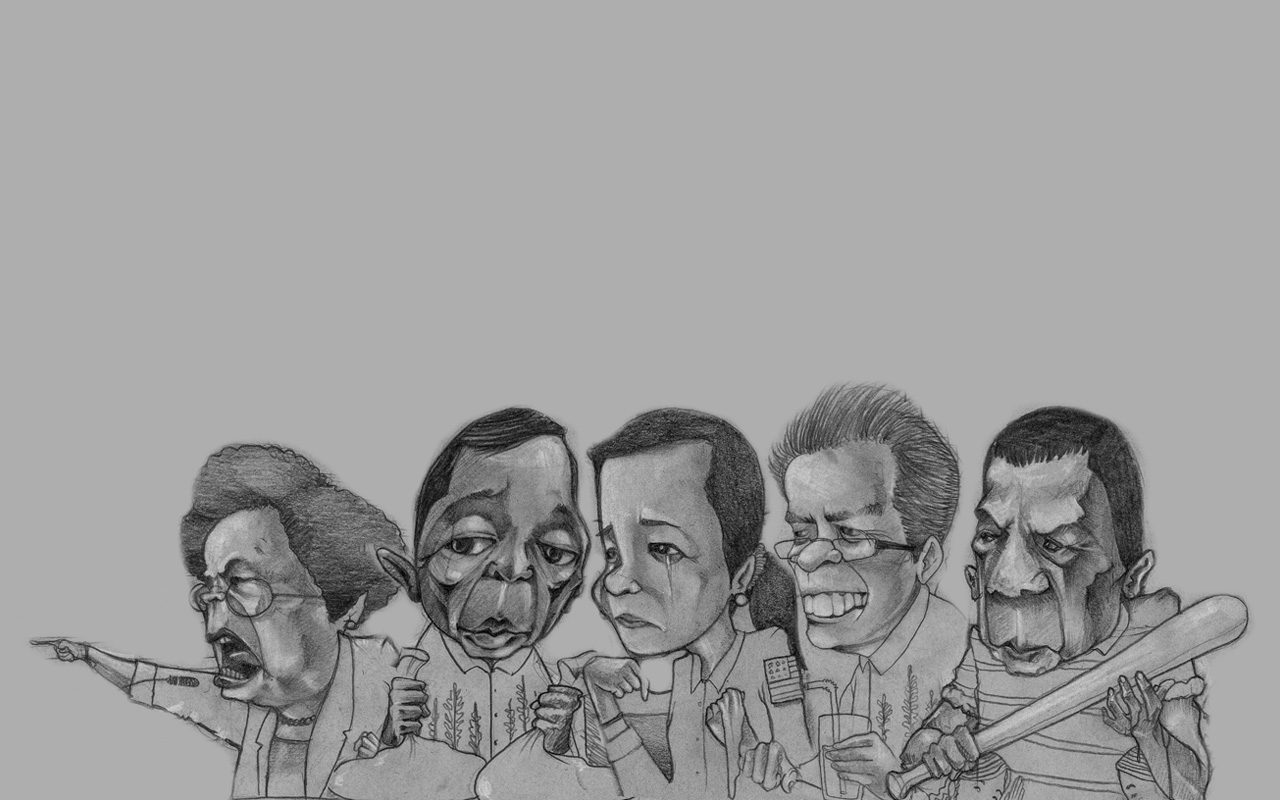




There are no comments yet. Add your comment to start the conversation.